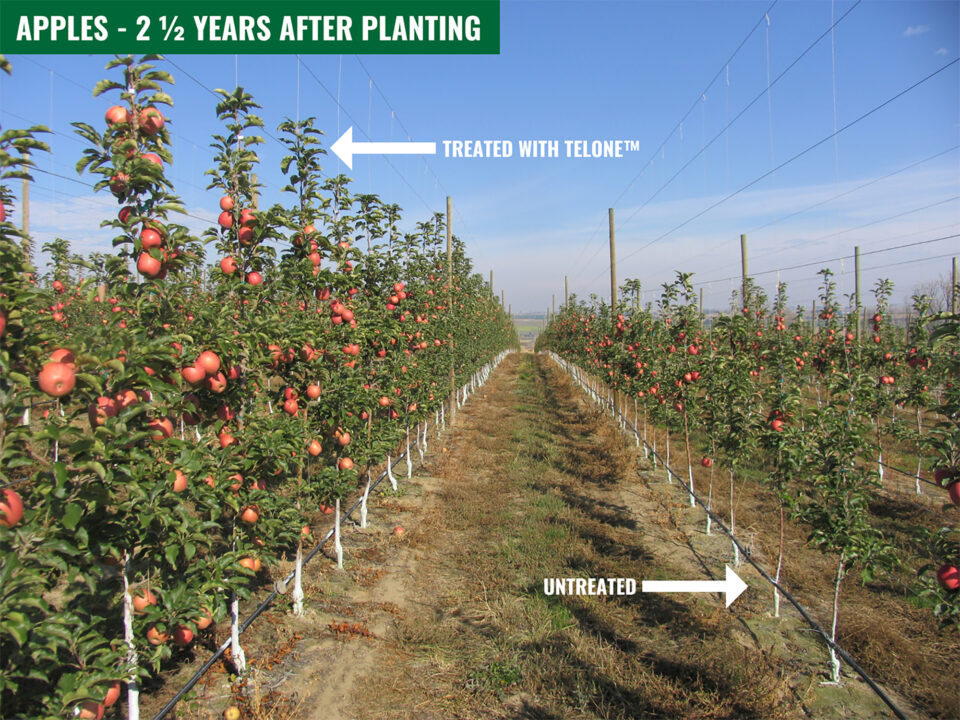New Grants Announced For Food Safety
The Center for Produce Safety (CPS) at the University of California, Davis announced the award of 17 new grants for research to help mitigate food safety risks associated with growing and harvesting fresh produce. The results of the latest round of CPS grant making were announced by CPS Executive Director Bonnie Fernandez-Fenaroli at the Florida Fruit and Vegetable Association’s annual convention in Naples.
The broad scope of the winning projects reflects the strong financial commitments of CPS’s Partners in Research (PIR), which includes a broad cross section of public and private supporters. To date, CPS has funded 41 research projects valued at $6.8 million. The awards announced resulted from a CPS request for proposals issued in March. The awards were made possible by matched funds provided by PIR members including the California Department of Food and Agriculture (CDFA) Specialty Crop Block Grant Program, Washington State Department of Agriculture (WSDA) Specialty Crop Block Grant Program and University of California Agriculture and Natural Resources (UCANR) on behalf of U.S. Department of Agriculture-National Institute of Food and Agriculture (NIFA).
In addition to CDFA, WSDA and UCANR, other Partners in Research include:
- Almond Board of California, www.almondboard.org
- California Leafy Greens Research Program, www.calgreens.org
- California Melon Research Board, www.cmrb.org
- California Cantaloupe Advisory Board, www.cmrb.org
- California Walnut Commission, www.walnuts.org
- Florida Tomato Committee, www.floridatomatoes.org
- Florida Specialty Crop Foundation, www.floridaspecialtycropfoundation.org
- Northwest Horticultural Council, www.nwhort.org
- Washington Tree Fruit Research Commission, www.treefruitresearch.com
- Taylor Farms, www.taylorfarms.com
The latest round of grants exemplifies CPS’s progress in facilitating public and private collaborations through its PIR program. PIR grants are co-developed and co-funded with PIR partners to address the research priorities of the specific commodities, commodity groups, and/or growing regions represented by PIR partners.“On behalf of our partners, we are eager to demonstrate the power of leveraging public and private commitments to address critical research questions,” said Tim York, president of Markon Cooperative and chairman of the CPS advisory board. “These collaborations are the way of the future and we will work to foster them as long as they produce results.”
The Florida Specialty Crop Foundation (FSCF) joined the Partners in Research program this year. Sonia Tighe, executive director, FSCF stated, “We feel it is important to collaborate with other produce partners to support research into the critical areas of food safety. By cooperating with the Center for Produce Safety and other partners, we are able to expand our research initiatives and achieve common goals.”
Working with technical experts from PIR organizations, the CPS Technical Committee—an independent advisory board including experts from industry, academia, government and nongovernmental organizations—reviewed 44 proposals before selecting the following winners, who will receive funding starting in January 2011:
- Survival, transfer, and inactivation of Salmonella on plastic materials used in tomato harvest.
Lynne McLandsborough, University of Massachusetts Amherst - Investigation of E. coli survival on contaminated crop residue. Steven Koike, University of California Cooperative Extension
- Enhancing the efficacy of fresh produce washing operations through establishing monitoring methods and water disinfection technologies based on a combination of filtration and UV. Keith Warriner, University of Guelph
- Evaluation of amphibians and reptiles as potential reservoirs of foodborne pathogens and risk reduction to protect fresh produce and the environment. Michele Jay-Russell, University of California, Davis
- Irrigation regime, fruit water congestion and produce safety: parameter optimization to reduce susceptibility of tomatoes and peppers to post-harvest contamination, pathogen transfer and proliferation of Salmonella. Max Teplitski, University of Florida
- Pathogen transfer risks associated with specific tomato harvest and packing operations. Michelle Danyluk, University of Florida
- Escherichia coli O157:H7 in bioaerosols from cattle production areas: evaluation of proximity and airborne transport on leafy green crop contamination. Elaine Berry, USDA, ARS
- Evaluation of the baseline levels of microbial pathogens on Washington state fresh market apples and mitigation measures used to eliminate contamination. Diane Wetherington, Intertox
- The likelihood of cross contamination of head lettuce by E. coli O157:H7, Salmonella and norovirus during hand harvest and recommendations for glove sanitizing and use. Jennifer Cannon, University of Georgia
- Risk assessment of Salmonella preharvest internalization in relation to irrigation water quality standards for melons and other cucurbits. Trevor Suslow, University of California, Davis
- Developing and validating practical strategies to improve microbial safety in composting process control and handling practices. Xiuping Jiang, Clemson University
- Science-based evaluation of regional risks for Salmonella contamination of irrigation water at mixed produce farms in the Suwannee River watershed. Anita Wright, University of Florida
- Developing buffer zone distances between sheep grazing operations and vegetable crops to maximize food safety.
Bruce Hoar, University of California, Davis - Impact of organic load on sanitizer efficacy and recovery of Escherichia coli O157:H7 during commercial lettuce processing.
Elliot Ryser, Michigan State University - Developing a program to educate the walnut supply chain as it pertains to product handling and safety.
Devon Zagory, Zagory & Associates LLC - Influence of the pre-harvest environment on the physiological state of Salmonella and its impact on increased survival capability. Linda Harris, University of California, Davis
- Non-invasive imaging approaches to evaluate potential infusion of pathogens during vacuum cooling of lettuce leaves and real time dynamics of microbes on leaf tissues as a function of moisture content. Nitin Nitin, University of California, Davis
“We are pleased with both the quality and the scope of the selected projects,” said Dr. Bob Whitaker, chairman of the CPS Technical Committee and chief science & technology officer for the Produce Marketing Association. “These projects go to the heart of many of the critical food safety questions faced daily by growers and processers in our industry, and will provide them with real-world risk management tools.”
Click here to see a list of newly funded projects.
Source: CPS news release










